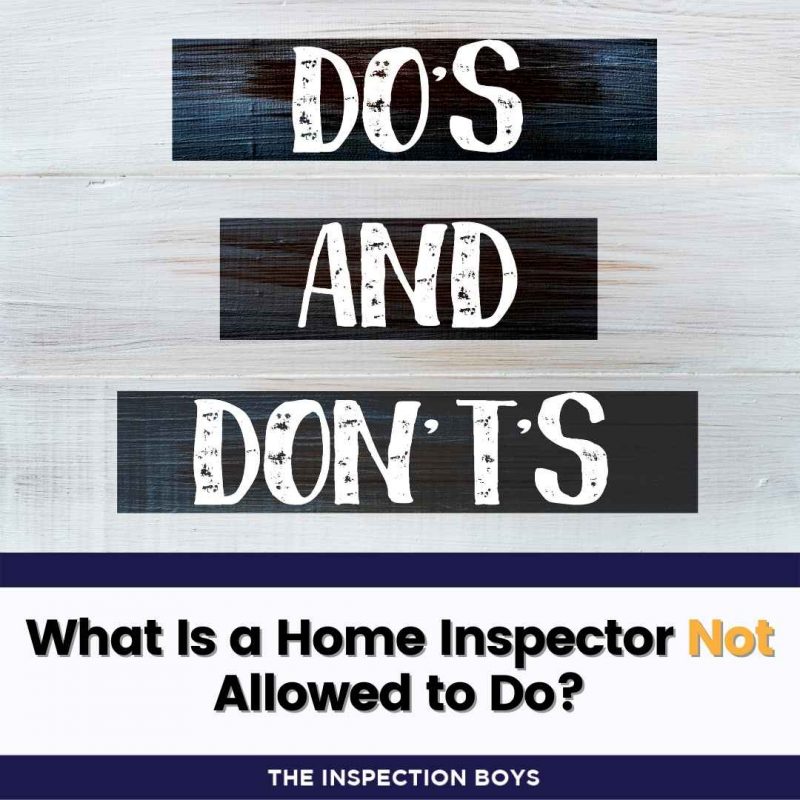Home Inspectors Should Never Refer Repairs to Themselves or a Company They Own.
The home inspection aims to see the actual condition of the property. Home inspectors should never offer to fix any defects they find during the home inspection. It is a red flag for your company to have a branch that does home repairs or renovations. If your home inspection company is a source of referrals for your HVAC business, you have the incentive to find or exaggerate defects in the home’s HVAC system. It is illegal in many states that this practice can revoke your license.Home Inspectors Can’t Cause Damage to a Home to Inspect It.
A home inspection should always be non-invasive. Home inspectors are allowed to go through every corner of the property, but demolition is never allowed. This will expose you to liabilities. This is against the InterNACHI’s code of ethics and can result in your license being revoked.Home Inspectors Can’t Inspect Homes With Immediate Safety Hazards.
Never inspect a home with an immediate safety hazard that can likely expose you or anyone else to danger. Examples are icy roofs, dangerous wirings, or significant structural damage that went previously unnoticed during the inspection. These are known as emergent hazards, and it is not advisable to continue inspecting these areas of the home.Home Inspectors Shouldn’t Speculate on Hazards That Must Be Tested For.
Home inspectors may speculate on things such as mold, lead, asbestos, and radon based on the things they see, like the home’s age, style, or location. However, these things must first be tested to see if their presence in the house is already at an unsafe level. A home inspector’s job is to encourage the homeowners to get environmental testing to make sure. Home inspectors are not scientists; therefore, they should not go ahead of what can only be determined.Home Inspectors Shouldn’t Comment on a Home’s Value.
It is usual for homeowners to ask how a home inspection could affect their sales. However, as a home inspector, it is no longer part of your job to comment on the home’s value. Your answer might affect the negotiation process causing a sale to be complicated. Stay out of the agent’s lane.Home Inspectors Shouldn’t Estimate the Life Expectancy of Systems.
A home inspection aims to evaluate the home’s current condition. You cannot predict how much longer an appliance or structure has before it needs to be replaced.Here Are More Things Home Inspectors Aren’t Allowed to Do:
- Speculate about building code compliance.
- Move furniture to access a part of the house. They may end up being liable for the damage. The seller should do this in advance.
- Evaluate the cosmetics or aesthetics of a house.
- Disassemble equipment to figure out why it’s inoperable.
- Tell you where your property lines and boundaries are.
- Declare a home unlivable or condemn a home.
- Issue a pass or fail grade for your inspection.
- Determine the insurability of a home.

